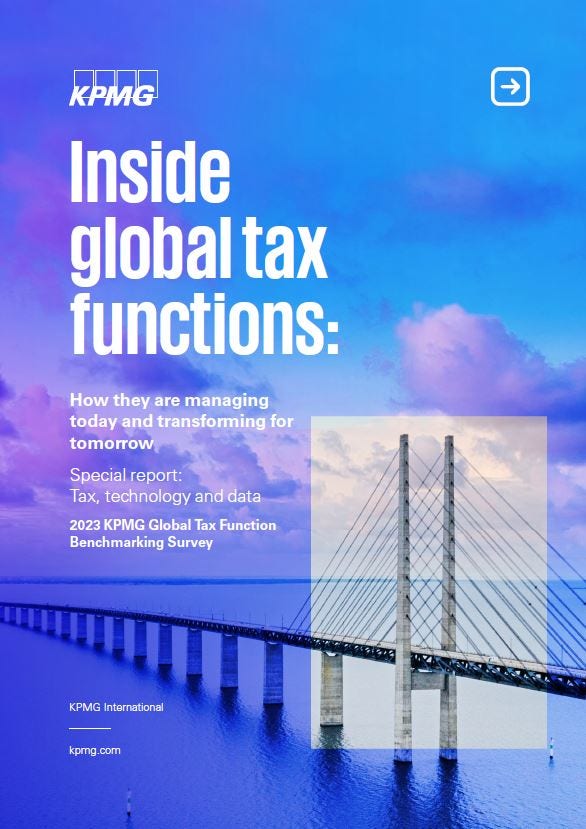How does your tax function stack up when it comes to technology and data?
Seasoned tax leaders make key decisions every day to evolve their tax function and keep pace with unprecedented pressures, disruptive technological advancements, heightened compliance obligations and more — all while seeking to demonstrate value within the organization and beyond.
Benchmarking against comparable tax functions can be a powerful tool for reflecting on your organization's current position and planning how to prepare for the future. To help, KPMG International conducts an ongoing survey of the tax functions in multinational organizations around the world. The data gained offers insights into tax functions globally and how they are evolving in their structure, governance, priorities and performance measures, through the use of technology and more.
In this special focus report, we take a deeper dive into tax functions and how they are evolving in their tax operating models to leverage technology and data and analytics (D&A) to deliver more strategic value.
How does your company’s tax function stack up against its peers when it comes to tax, data, and technology?
Explore this special report to find out.

Key takeaways
Tax operating models
In recent years, the ability to deploy, manage and derive strategic value for tax technology and data efficiently, effectively has become a hallmark of leading global tax functions. Enabling these abilities requires significant investments in tax operating model transformation backed by a company-wide commitment to change.
Top priorities
The top priorities cited for future process improvements were process standardization and use of tax data to inform business strategy and planning. Enhancing employee knowledge around tax technology and/or to bring in more tax technology personnel to the tax department was also considered important.
Data challenges
Companies are calling on their tax functions to make more strategic use of their tax data, but tax teams are challenged by data access and format issue, time constraints and lack of process automation. The work needed to make data usable for tax consumes considerable tax team time — up to 60 percent for one-quarter of the respondents.
Tax transformation
Tax transformations are more likely to succeed when they are supported with appropriate skills, effective change management, the right technologies for well-defined goals, alignment with the business and sufficient budget and resources. To deliver this support, an emerging best practice, now in place at one quarter of respondent companies, is to dedicate a tax technology or process improvement person or group exclusively to championing tax transformation.







